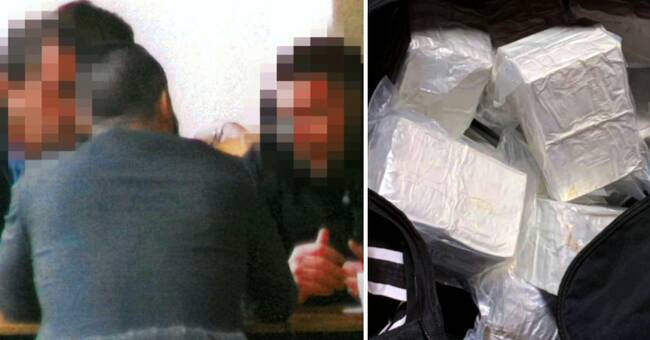In February last year, a transport of almost 400 kilos of cannabis was carried out from Spain to Kungsängen, northwest of Stockholm.
A few hours after it arrived, the police struck.
Two men, a 40-year-old and a 58-year-old, who were involved in the transport were later charged with extremely serious drug smuggling and extremely serious drug offenses.
The transport was in fact a so-called controlled delivery which the authorities followed all the way through Europe and the driver was actually a German customs official.
The men had neither been aware of it nor that "Ivan", a man they collaborated with on the smuggling, was a police infiltrator.
Mediated contacts
In the district court, both men were convicted, but the court of appeal reasoned differently and acquitted the 58-year-old.
The court considered that he had admittedly committed aiding and abetting the crimes by arranging contacts and arranging meetings.
But according to the court, it is not certain that he had committed the crimes without the provocation that the police were responsible for.
The 40-year-old has now appealed the Court of Appeal's ruling to the highest court and also wants to go free.
"NN would not have committed this or any other similar act if the provocation had not taken place", the defense writes in the appeal and points out that the man is already unpunished.
There is uncertainty
It is also a matter of fact that it is not regulated in Swedish law what the use of so-called provocative measures may look like and how it affects criminal liability of those who have been the subject of the measures.
This suggests that the case should be taken up by the Supreme Court, according to the defense, which believes that "uncertainty regarding the legal situation" has resulted in one of the two who was provoked being acquitted, and the other not.
The Public Prosecutor, for his part, has decided not to appeal the verdict as there are "insufficient reasons" for it.
An assessment of the judgment that has been made states that the case is extensive and that it largely concerns questions of evidence.
Therefore, it becomes doubtful how much guidance a trial in the Court of Appeal can actually provide, according to the Public Prosecutor's Office.
Now the Supreme Court will decide whether the case should be granted leave to appeal or not.
It is very difficult to get through one.
HD receives approximately 6,000 appeals each year, of which just over 100 receive leave to appeal.
Javascript is disabled
Javascript must be turned on to play video
Read more about browser support
The browser is not supported
SVT does not support playback in your browser.
We therefore recommend that you switch to another browser.
Read more about browser support
Police.
Photo: SVT

